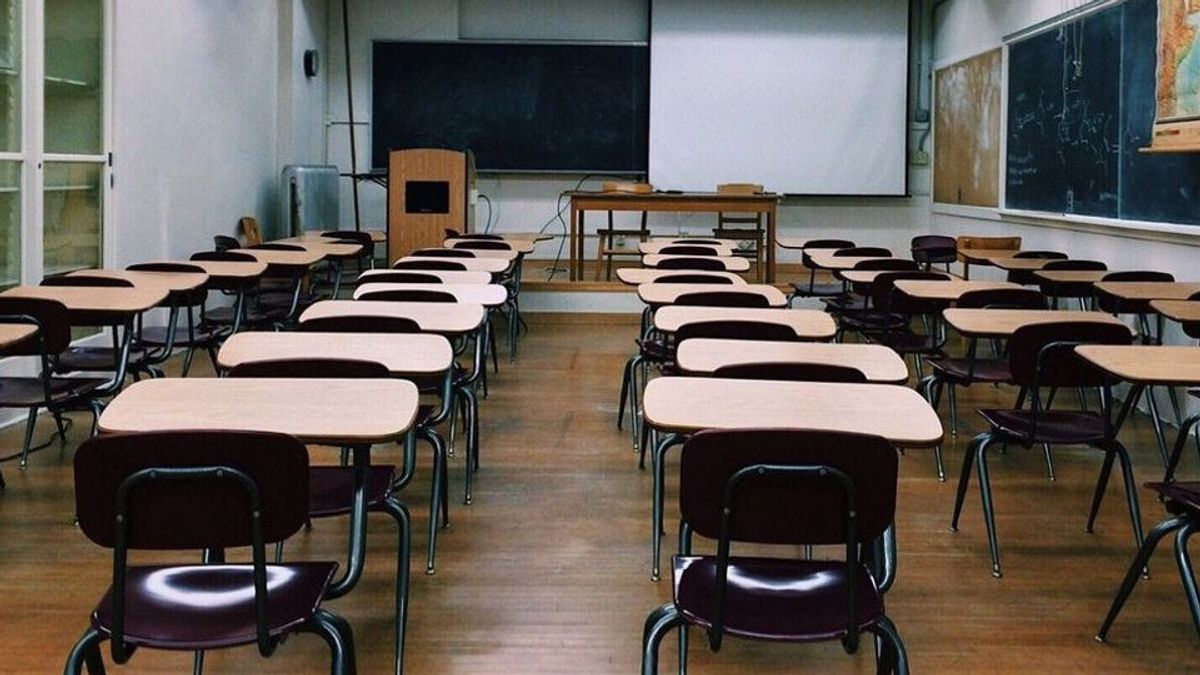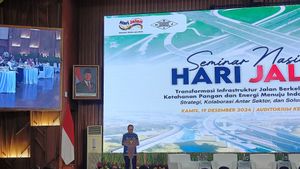JAKARTA - The Federation of Indonesian Teachers' Unions (FSGI) noted that there were six problems in the education sector throughout 2020, which coincided with the COVID-19 pandemic.
The Secretary General of FSGI, Heru Purnomo said, the first problem was the emergence of Article 65 Paragraph 12 of Law Number 11 of 2020 concerning Job Creation. This article states that the implementation of licensing in the education sector can be done through business licensing.
There were concerns that the Job Creation Law would encourage the commercialization of education. However, the government denied this and said that this rule only applies to formal education in special economic zones. Unfortunately, according to Heru, it is feared that there are still multiple interpretations in the regulation.
"FSGI encourages Article 65 Paragraph 12 to be revised so that it does not become a multi-interpretation article, and urges the government to issue a government regulation to ensure that the excesses of ease of business license in the education sector are not misused," Heru said in his statement, Wednesday, December 30.
The second problem is the national assessment plan (AN) as a substitute for the national exam (UN) which has not been socialized in detail.
Heru said, FSGI encourages the government to start implementing AN in 2021 which has been designed to monitor and evaluate the national education system, produce appropriate mapping, and can be used to improve the education system.
"FSGI encourages clear regulatory provisions related to AN policies and as soon as possible these provisions are socialized to schools in a structured and massive manner," he explained.
Third, FSGI found many problems in distance learning (PJJ) during the COVID-19 pandemic. The problems range from students who have difficulty learning online to decreased interest in learning, uneven internet package assistance, and lack of supervision of PJJ implementation.
"PJJ is a new thing for children, parents, or schools. It is as if no one party has sufficient provision to live it, both pedagogically and psychologically," he said.
Fourth, the Merdeka Belajar grant that was handed over by PT Sekolah Cikal as the owner of the Merdeka Belajar brand to the Ministry of Education and Culture is unclear. This is because it is only stated in the agreement letter for submission and sharing.
"Legally submitting a grant must have a grant certificate. The transfer of rights to grants must be registered officially, must be announced, there are witnesses from the Ministry of Law and Human Rights, and there are notaries representing the state, "Heru said.
Fifth, many COVID-19 clusters were found in Islamic boarding schools. FSGI found 3,089 positive cases from the pondok pesantren cluster. As many as 99 percent of the cases are santri.
Seeing the high number of COVID-19 cases in Islamic boarding schools, FSGI reminded local governments to be careful in opening schools face-to-face, needing caution and serious preparation.
"If the regions and schools are not ready, postpone opening schools in January 2021, especially in areas that have just finished holding Pilkada on December 9, 2020. Data on cases in these areas are needed, especially after year-end holidays," he said.
Sixth, preparing to open face-to-face schools requires a large budget. Therefore, relying on relaxed BOS funds would not be sufficient. This is because BOS funds have been needed to finance 8 national education standards.
"FSGI encourages the need for a new budget policy in education to prepare for face-to-face school opening during the pandemic, namely through other budgets outside of the BOS funds. If not, then the potential for schools to become new clusters is huge," he concluded.
The English, Chinese, Japanese, Arabic, and French versions are automatically generated by the AI. So there may still be inaccuracies in translating, please always see Indonesian as our main language. (system supported by DigitalSiber.id)













